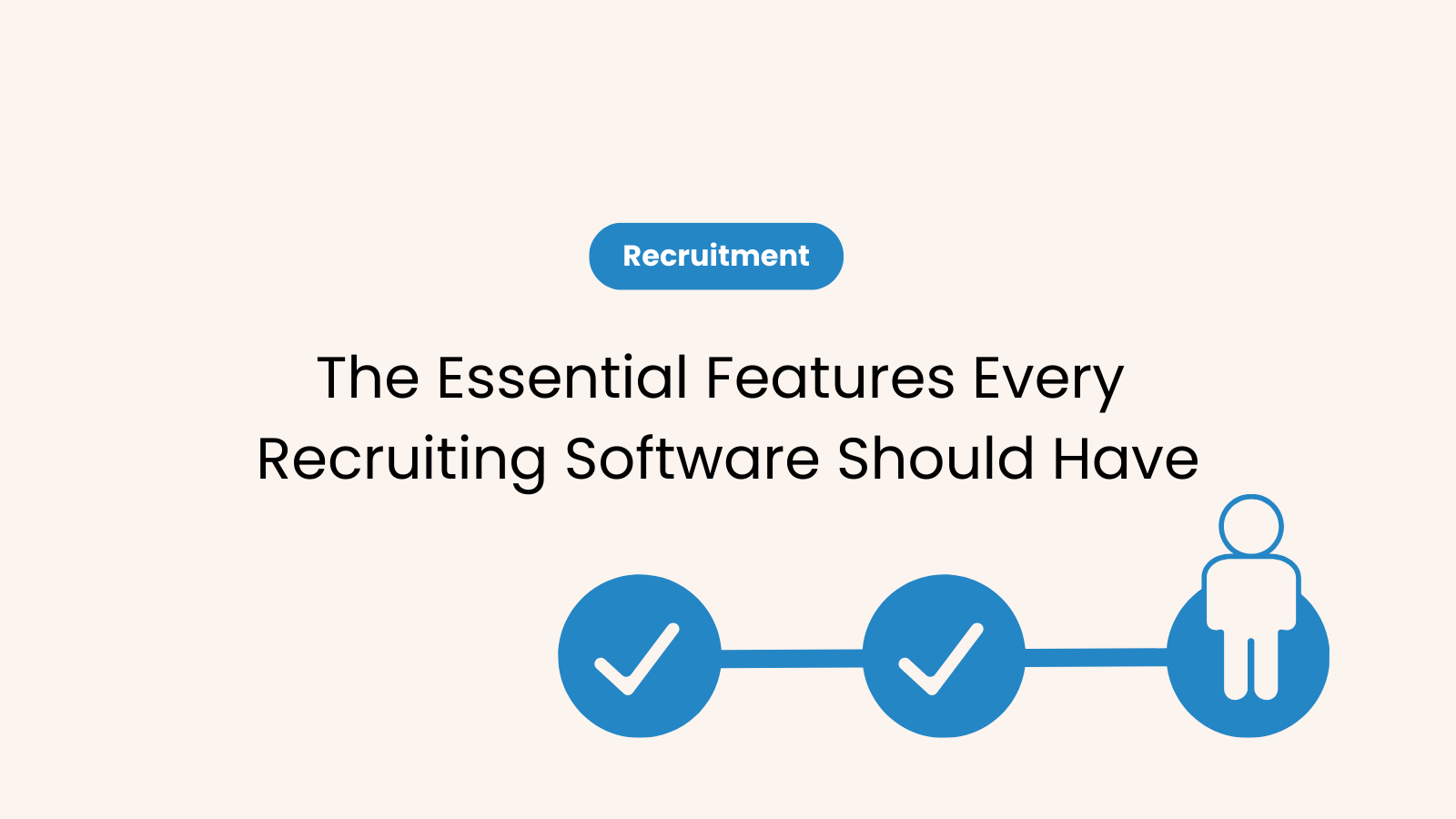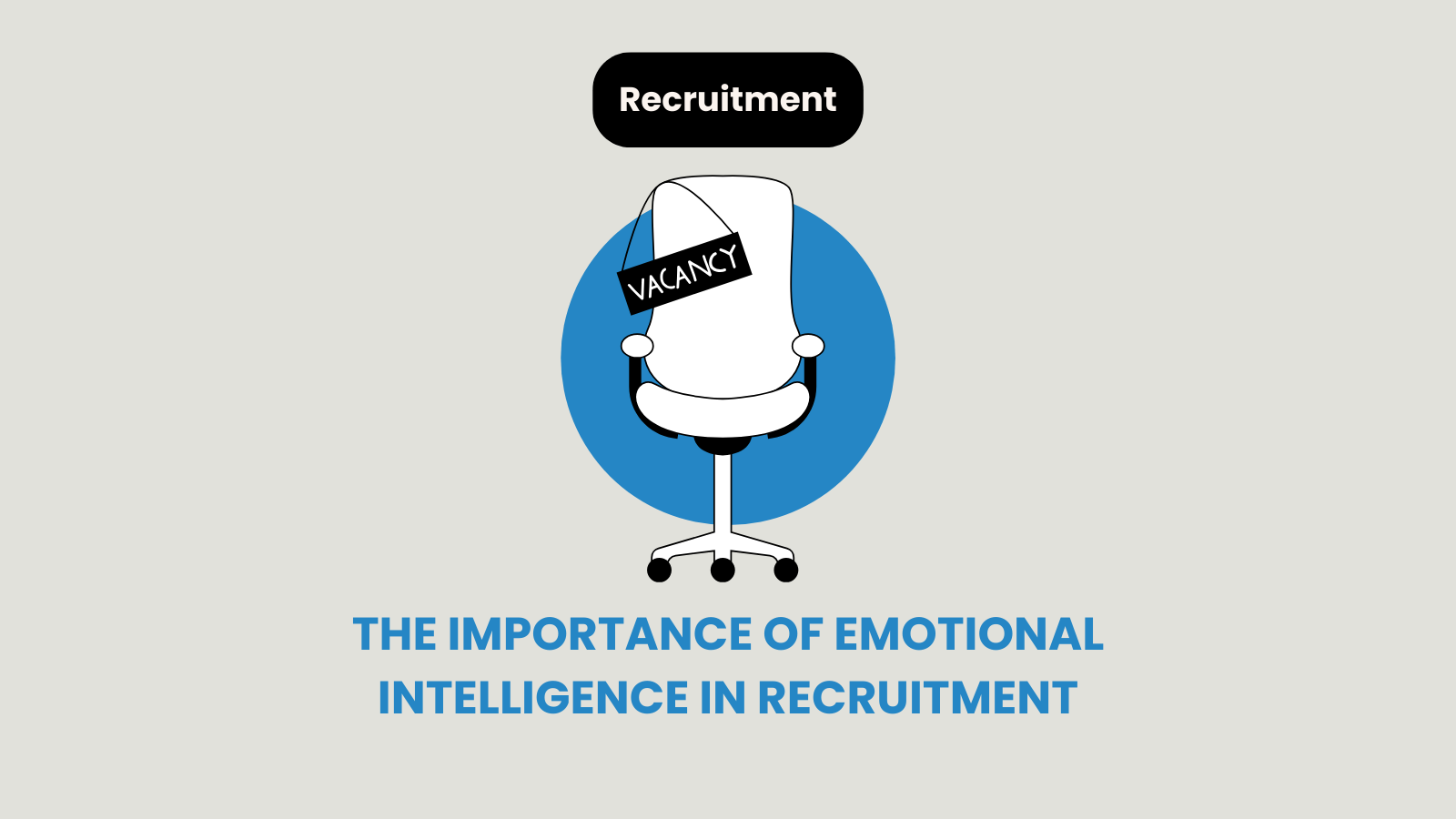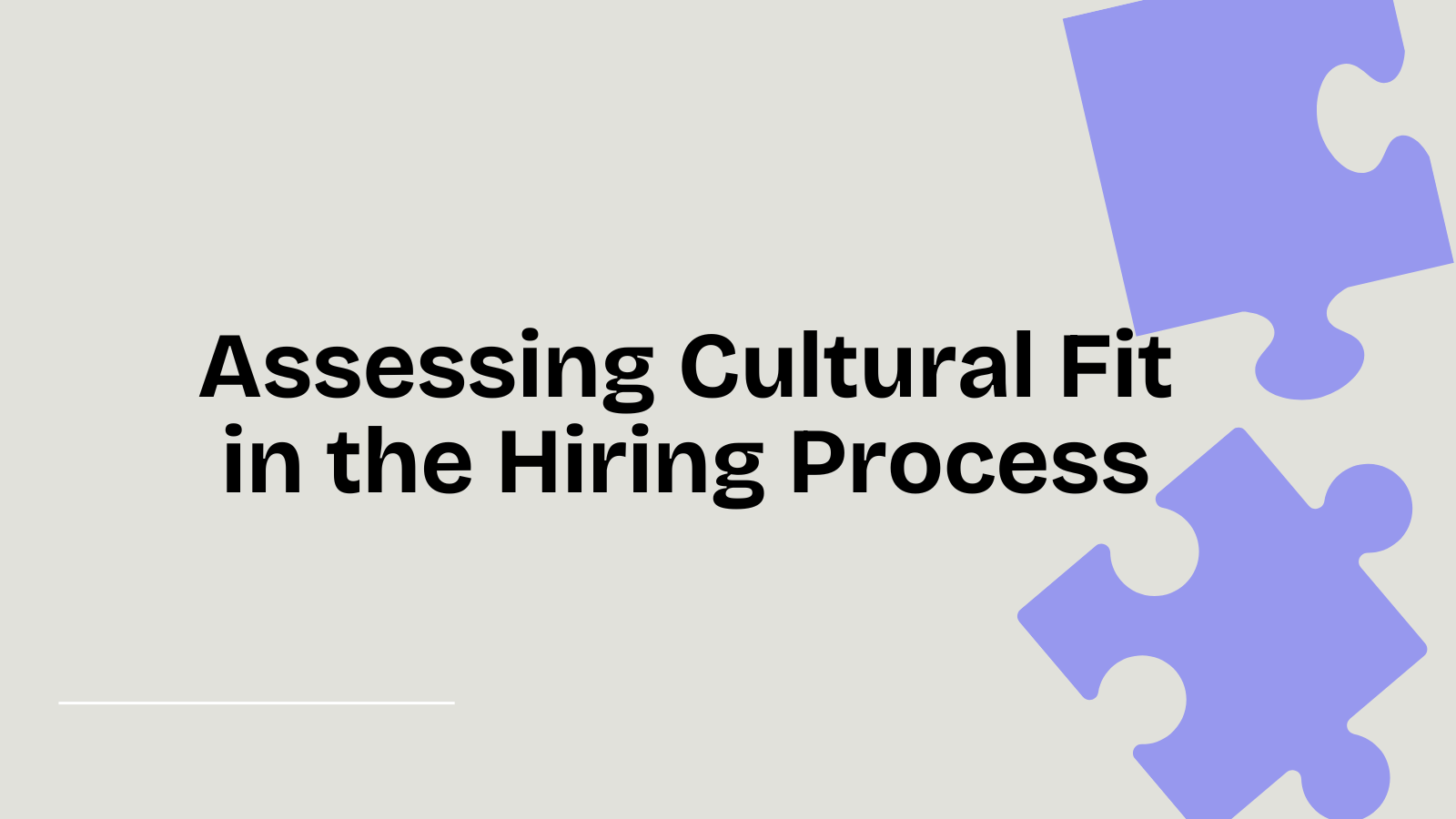The recruitment process done right implies avoiding miss-hires and making sure that the most suitable candidates reach the final stages of the process and receive job offers. Recruiters play a significant role in the company’s growth and success long-term.
Their expertise should serve to bring in the most qualified people who will fit into the team and respect their culture, mission, and values. Recruiting specialists must be aware of the hiring red flags that might pop up during some stage of the hiring process.
Recruiters’ responsibility is to detect and accurately estimate all potential risks and issues that could appear during the interviews or any other phase. Recruiters, sit tight and don’t overlook the warning signs.
Spot the Red Flags
No hiring process is perfect. Companies make hiring mistakes from time to time. However, it would be best if recruiters and hiring managers tried not to repeat the same errors when hiring a new candidate.
Conducting a thorough interview is a crucial step to learn about the candidates, and by carefully listening and analyzing their answers, recruiters can spot a red flag. Some of the hiring red flags are:
- Unpunctuality
- Toxic behaviour on social media
- Vague answers during the interview
- Inconsistent career path
- Stealing the spotlight
- The lack of good communication and active listening
The truth is that a bad hire can harm a business. The interviewing process must be structured in such a way to keep both sides correctly informed. A meticulous approach to the interviews ensures a company will avoid wasting time and money when hiring.
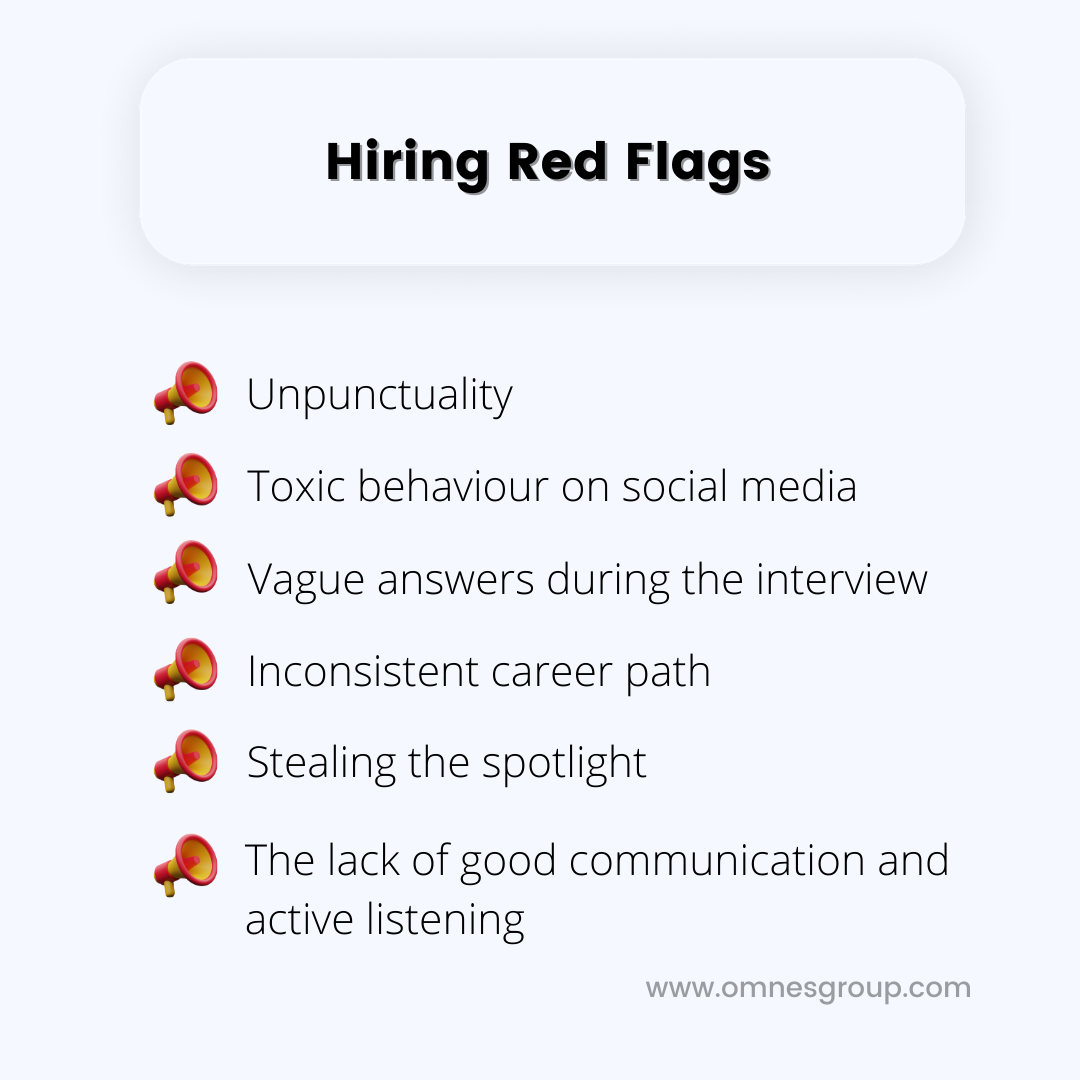
Unpunctuality
Showing up late for an interview often suggests a lot about a person. If the candidate cannot attend the meeting on time, they would most likely repeat the same behavior pattern after being hired. The lack of punctuality is one of the primary red flags to look out for during the interview.
Lateness can indicate that the candidate doesn’t have solid time-management skills. Unpunctual people seem unprofessional and unreliable. In some cases, candidates who show up late might not be truly interested in the job opportunity. Every company should be searching for trustworthy employees.
If they can’t give respect by being on time, it’s time for a recruiter to ring the alarm. Of course – there can be a genuine reason for a candidate to run late. Sometimes it is best if a company used external recruitment services. Their staff has enough experience to determine with accuracy whether a candidate has a legit reason to run behind schedule.
Toxic behaviour on social media
Online activities can sometimes reflect candidates’ efforts in the workplace. The majority of hiring managers will check out the social media activities of their candidates before making a final decision.
If the employer encounters negative photos, comments, and specific malicious actions that could negatively affect the company, they will start looking for another candidate. Some of the red flags to watch out for when checking out the online presence are negative comments about their previous employer.
Speaking negatively about previous employers publicly often implicates an overall bad attitude. Hiring a candidate with a questionable online presence can decrease employer branding efforts.
Vague answers during the interview
Recruiters might discover a fitting candidate with an outstanding resume, and still, during the interview, the candidate’s answers are generic, and they cannot show their full potential.
Some seemingly suitable candidates provide vague answers to the interviewers’ questions; this is often a sign that they don’t have the experience or the skills needed for the role. Some candidates ameliorate the impression by preparing their answers in advance and appear to be more experienced than they truly are.
Interviewers should ask in-depth questions to eliminate the possibility of hiring a candidate who does not possess the necessary skillset.
Inconsistent career path
The work history presented by the candidate with suspicious unemployment gaps is usually a concern. The hiring team should examine this particular red flag in detail.
Considerable gaps in employment history, irregular career paths, or job-hopping could mean that a candidate has problems keeping their job or gets bored quickly. If a recruiter finds something fishy about the candidate’s previous employment, they should ask them directly.
Frequently there is a logical explanation for the unemployment gap. Nevertheless, this could also be a warning of a deficiency or problem.
Reference checking
Candidates provide different sorts of references; still, an essential reference is provided by their supervisor. Colleague references are excellent indicators of good communication within the team, but if a candidate cannot provide a recent supervisor’s consideration, it’s unmistakably a red flag.
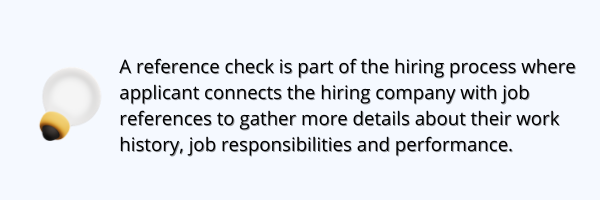
If the candidate denies references, it will destroy the bond between them and the employer and lead to distrust. Not all employers require these references. Those who do will indeed become distant if this step doesn’t go as planned.
Stealing the spotlight
Always ask the questions that will help you understand whether your candidate is a team player. Most of the candidates worked as a part of the team during their previous jobs.
Still, some of them refuse to acknowledge the efforts and positive outcomes achieved thanks to their whole team’s investment. A candidate who strives to become a queen bee in any given situation is just wrong for the team. Every team. This type of person is typically keen on glory and not really into the hard work.
Employers should go for a candidate who speaks kindly about others and appreciates their work.
The lack of good communication and active listening
Lousy listening skills will pop up during different stages of the interview process. The first chance to immediately examine candidates’ listening skills is during the initial contact with them. Forgetting the fundamental information about the company right after you discussed it could represent a bit of a problem.
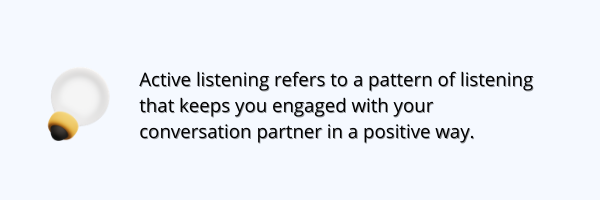
These shortages suggest the candidate does not pay enough attention to detail. Disregarding the rudimentary knowledge about the company is usually a red flag. Make sure to spot it.
Pay attention to the nonverbal communication
Nonverbal communication, getting dressed for the occasion, and some non-role-specific aspects matter a lot and are among vital interview etiquette rules.
Most interviewers rely on body language to determine whether the candidate is suitable for the job, which can point to more delicate red flags that could make the candidate an inadequate cultural fit.

